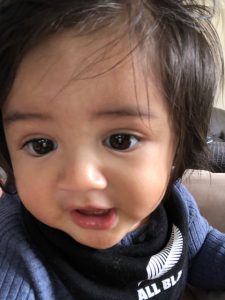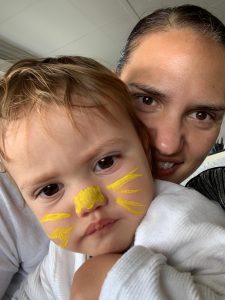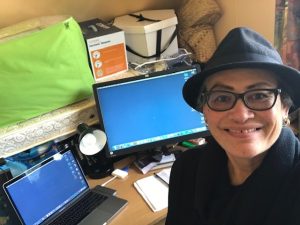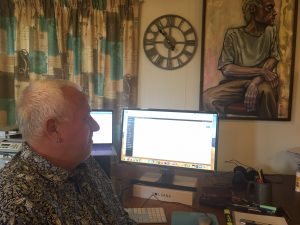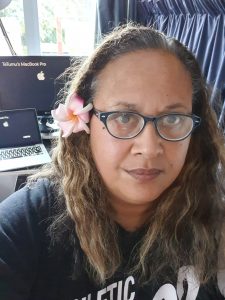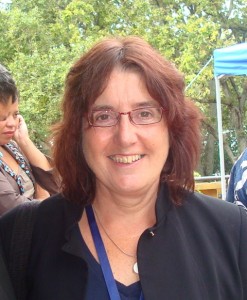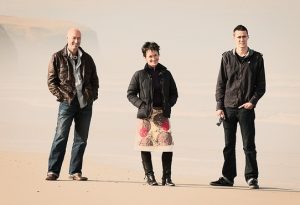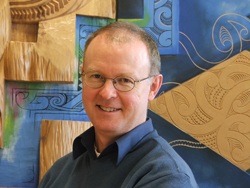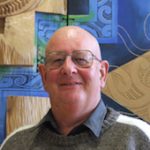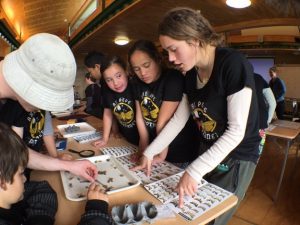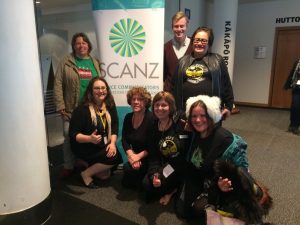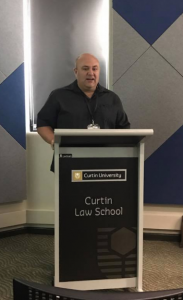Te Tumu Research Under Lockdown
The Lockdown has proved hugely disruptive to all Te Tumu staff, impacting on all aspects of our academic lives, including research. We now move from Lockdown to Level 3 – which so far doesn’t look too much different for us. Despite this, we have still been managing to keep our research productivity going, hopefully with some “outputs” in the offing.
To find out a little bit more, I sent out a request to staff to send in a few details on the highs and lows of their research during lockdown.
First, let’s talk about some of the problems. Some staff talked of getting “zui’d out”, i.e. too many Zoom hui. There’s been some research on how tiring Zoom meetings can be, and what with teaching online, staff and school meetings, supervision get-togethers, and other hui, it can seem like some days we are constantly on Zoom. Then there’s the extra effort preparing for online teaching, especially in the reo classes where you need to convert the quick-flowing quick-changing interactive tasks into online teaching activities.
Then there are the events that have been cancelled or deferred, such as Poia Rewi’s Māori language symposium that he had planned with the Government Department Collective, and Michelle Schaaf’s planned delivery of Summary Report for ‘Childhood in a Changing Pacific’: Samoa and Dunedin to Pacific communities in Samoa and Dunedin. Lachy Paterson had also been planning to kick off his upcoming research and Study Leave (RSL)with a couple of conferences in France, but these have both been cancelled.
Then there’s working from home. Three of our staff have young children also locked down with them, which creates its own complications. As Karyn says, she has also been “researching meal plans for a fussy eater and activities to keep a 13 month old entertained” – hard work when “food still refuses to get eaten and suggested activities don’t keep her attention for longer than 5 minutes!!” And one person complained (was it a complaint?) that “My new office space is far too close to the pantry”.
So if those were the lows, what were the highs?
Poia says he is pleased that Gianna Leoni and Tangiwai Rewi have come on board the Te Reo Me Ngā Tikanga Māori Platform for 2020 research, looking at the impacts of research by researchers under Ngā Pae o te Māramatanga. Gianna is also feeling chuffed that she has finished a research proposal she had been needing to do for a few months – and having it accepted.
Tangiwai, as Chair of the Te Tumu Research Committee, also organised a “Hot Tips” Zoom session with staff earlier this month, on how to enhance their applications for University of Otago Research Grants (UORGs). We were really pleased to have the ebullient Humanities Associate Dean (Research), James Maclaurin there to share his knowledge with us.
Both Lachy and Tangiwai are on RSL next semester, so have been revising their travel, and research and writing plans, which has been difficult given that no one knows how long we will be in Level 3, or when normality will return.
Lachy has been organising getting the proofs and indexing for a new edited collection on Indigneous textual cultures, which will hopefully be out in September. See here for more info. He been working on the Te Hau Kāinga/Māori Home Front project, including translating the blog posts. If you haven’t read the latest ones (in English or Māori) then check them out at the project website. You can also listen to him and Angela Wanhalla promoting the project on Radio New Zealand’s Saturday Morning programme on Anzac Day: Lachy has also been asked to submit an abstract for a chapter on Māori newspapers in The Edinburgh Companion to British Colonial Periodicals.
Michelle has been busy transcribing interviews, sorting participants’ diaries and personal papers collected during her recent RSL, in preparation for UORG application. She is also part of a team who have just completed the Summary Report for Childhood in a Changing Pacific: Samoa and Dunedin. She has also been chosen to write a chapter for an e-book for Bridget Williams Books on “’Thesis Survivor Stories”, to be published in June.
Megan Pōtiki is busy on finishing her thesis. She recently published “Te hū o Moho: The call of the extinct Moho: The death of the Māori language at Ōtākou” which appeared in the latest issue of Te Pouhere Kōrero.
Lyn Carter has completed a journal article during the Lockdown, which she has sent off to a Sami journal. Otherwise, she says, she has been having lots of Zoom meetings with various research clusters around climate change and health/climate change and environment, including on her National Science Challenge projects, Building Better Homes, Towns and Cities, and BioHeritage.
Building on her publishing success from last year, Telesia Kalavite, is currently writing a journal article for the New Zealand Journal of Educational Studies. She is also one of the principal applicants for a successful grant application for Humanities Research Network with an amount of $10,000 for 2 years. The name of the project is: “Pacific Thought Network (PacTNetwork)”. Telesia is now developing an application for UORG grant to further her research.
Our newest staff member, Vaivaimalemalo Michael Ligaliga, has been very busy. He has been developing a book proposal for Palgrave Macmillan based on his PhD thesis, as well as a UORG application. Michael has also been working on a chapter on the Samoan perspective on addressing domestic or family violence for the Handbook of Positive Peace , and another for Decolonizing Indigenous Research Methodologies in Peace and Conflict Research.
Michael Reilly has been continuing his work, writing chapters about Māui Pōtiki, one on a Ruapuke Island narrative, and another looking at two stories by Mohi Ruatapu. His aim is to incorporate these chapters into a book about Maori tribal traditions, perhaps with Auckland University Press, building on the kind of topics he has taught in his MAOR207 and INDV307. Michael has also been asked to contribute a chapter on emotions in the Pacific and Australia for an edited book, The Routledge Modern History of Emotions.
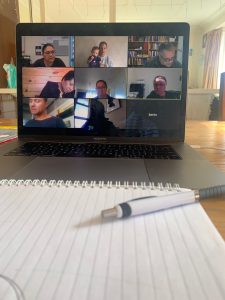
Perpetual hui on Zoom! Here Karyn and Manuhou are attending a board meeting for Te Rūnanga Māori of Ako Aotearoa.
The Lockdown has disrupted Karyn’s Marsden research, so she’s been busy working on a new plan, and catching up on some of her reading. She has recently been published by Lancet Oncology. This came from an invitation to her and her collaborators to the International Gastric Cancer Linkage Consortium in Wānaka last year to share their research on updating the international practice guidelines for Hereditary Diffuse Gastric Cancer. Karyn is currently working on the final draft of a book chapter she is co-writing with Marcelle Wharerau (ex-Te Tumu student, now teaching at Waikato University) on subversive pedagogies entitled, “Tūngia ki te marae, tau ana – culturally transformative learning in universities”.
Paerau Warbrick was enjoying his RSL when the Lockdown was imposed, focusing his research on historic Māori elections, and the lawsuits that often went with them. He has just finished a draft article on the 1876 Eastern Maori election petition involving Hēnare Pōtae, Rōpata Wahawaha and Karaitaina Takamoana and the 1887 Northern Maori election petition involving Hirini Taiwhanga and Wī Kātene. Paerau is also working on an article on the monumental election battles between Wī Pere and James Carroll in the 1884, 1887 and 1890 elections, and making the finishing touches to another article regarding the UK Supreme Court and how it should take lessons from the NZ Court of Appeal Maori Council case of 1987 and the Foreshore and Seabed case of 2003.
Wherever you are, I hope you are all staying safe and keeping well, and being productive with your research (if that’s your thing).
Rangahau Roundup
Semester 2 has been busy on the research front for Te Tumu staff and postgrads.
Te Tumu is still progressing with Te Kōparapara, a book on Māori culture, history and contemporary society, which is designed as a textbook for MAOR102 as well as for a general audience. Prof Michael Reilly is the main driver of this project, and has been ably assisted by Dr Gianna Leoni. This book, with an array of essays mainly written by Te Tumu staff, is under contract with Auckland University Press and should appear sometime in 2017.
Faculty News
Associate Prof Jenny Bryant-Tokalau has been having a busy Research and Study Leave. She has given two presentations in the USA in the last semester: ‘Food security and other risks in a time of climate change: traditional and contemporary forms of resilience’, to the Department of Anthropology, and ‘Small Island Pacific States: Dealing with Climate Change’ to the Department of Geology at Wheaton College in Massachusetts. In December she presented ‘Working in Context: The Commercial Potential of Customary Pacific Land’ at the Aotearoa New Zealand International Development Studies Network Ninth Biennial Conference ‘Pacific Currents, Global Tides’ Wellington, and ‘Dealing with disasters and social change’ to the Asia Pacific Biocultural Health ‘Big Ideas’ Workshop, in Dunedin, December.
Jenny has also had one chapter in an edited collection appear during this period: ‘Community responses to floods in Fiji: lessons learned’ In Calabrese, John (ed.) Humanitarian Assistance and Disaster Response: Rising to the Challenge. MAP Series, Middle East Institute, Washington. August (2016) issue. Click here to access it. She also has two book reviews published in New Zealand and Pacific Studies November, 2016; and Journal of the Polynesian Society 125 (1), 2016.
Jenny is planning to return to the Solomon Islands to carry out in-depth interviews on small and medium businesses on Kastom land, as well as to finalise book edits for Palgrave MacMillan Anthropology of Disaster Series: What the Pacific Islands can teach New Zealand about Climate Change.
As previous posted, Prof Paul Tapsell spoke at the Indigenous Plenary at the WAC-8 Conference in September. Paul and Associate Prof Merata Kawharu are also part of the large three-year Mauri-Whenua-Ora project within the National Science Challenge Land and Water: Toitū te Whenua, Toiora te Wai. This project is the only fully Māori-led and Māori-integrated research programmes of all NSCs nationally, and is looking at Maori land and water based innovation including: (1) micro economy development “Pa to Plate”, (2) Shared iwi innovation for Taitokerau as a model for other iwi and (3) a regional (Te Hiku) study looking at Maori land suitable use and value chains. Merata also has a forthcoming publication, “Indigenous Entrepreneurship: Cultural Coding and the Transformation of Ngāti Whātua in New Zealand” in the Journal of the Polynesian Society, 125, 4 (2016): 385-408.
Associate Prof Lachy Paterson gave a presentation entitled ‘U.S. Slave “Humor” in New Zealand Newspapers’ at the 109th Annual Meeting of the Pacific Coast Branch of the American Historical Association at Waikoloa, Hawai’i. He is currently writing up this paper, which looked at how imported racist discourses permeated New Zealand’s English-language newspapers. Lachy returned to his ongoing obsession with Māori-language newspapers, with “The New Zealand Government’s Niupepa and their Demise” published in the New Zealand Journal of History, 50, 2 (2016): 44-67.
Together with Associate Prof Angela Wanhalla (Dept of History and Art History), he has also sent off their manuscript “He Reo Wahine: Māori Women’s Voices from the Nineteenth Century” to Auckland University Press, and it should appear sometime in 2017.
Over summer Prof Michael Reilly hopes to write a paper concerning the research relationship between William Wyatt Gill of the London Missionary Society, and Mamae of Ngāti Vara, a church minister, on Mangaia during the 19th century. In the longer run, he wants to begin writing chapters for an introduction to Māori tribal history, drawing from the draft text used as a ‘course reader’ in MAOR 207 Ngā Kōrero Nehe – Tribal Histories. Michael is passionate about this project but acknowledges that it may take several years to finish. He has also completed the final editorial corrections for a paper to be published this December, “Narrative Features and Cultural Motifs in a Cautionary Tradition from Mangaia (Cook Islands)”, in the Journal of the Polynesian Society 125, 4 (2016): 357-384.
Dr Jim Williams has a forthcoming article in the Journal of the Polynesian Society, entitled “Seafood Gardens”. Jim has a busy summer planned, fininishing off an essay for Ethnohistory, entitled “Layers of History” explaining how certain activities are repeated at powerful places, giving rise to notions of circularity of time, but layered, like whakapapa; he will also be giving a presentation in January at the American Historical Association conference in Denver. One of Jim’s students, Katrina Bryant, has just completed her Master of Physiotherapy.
In October newly graduated Dr Gianna Leoni gained a new position based in Te Tumu, that of a Ngā Pae o te Māramatanga postdoctoral fellow, with the research project “Te Ōhanga o te Pīpīwharauroa – Expressing our Economic Aspirations”. Click here for more details.
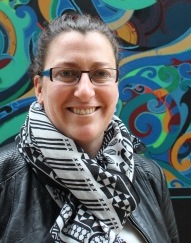 In June, Megan Pōtiki presented on her doctoral research on language loss at Ōtākou, at He Rau Tumu Kōrero IX at Te Rau Aroha Marae in Bluff. This event was run by Te Pouhere Kōrero, the national Māori historians organisation. Megan has also published two journal articles, “The Otago Peninsula: A unique identity” in Shima, 10, 1 (2016): 67-84 [Potiki-Shima-v10n1-3]; and ‘Te Haka Nā Ngā Herehere’ in Te Pouhere Kōrero 8 (2016): 6 –25, and is currently working on another article, “Māori song composition and reclamation of traditional tribal borders” based on a mōteatea she composed for the Te Tumu Kapa Haka group.
In June, Megan Pōtiki presented on her doctoral research on language loss at Ōtākou, at He Rau Tumu Kōrero IX at Te Rau Aroha Marae in Bluff. This event was run by Te Pouhere Kōrero, the national Māori historians organisation. Megan has also published two journal articles, “The Otago Peninsula: A unique identity” in Shima, 10, 1 (2016): 67-84 [Potiki-Shima-v10n1-3]; and ‘Te Haka Nā Ngā Herehere’ in Te Pouhere Kōrero 8 (2016): 6 –25, and is currently working on another article, “Māori song composition and reclamation of traditional tribal borders” based on a mōteatea she composed for the Te Tumu Kapa Haka group.
As part of Māori language week this year Tangiwai Rewi was asked to give a Library research floor talk on Wednesday 13 July on the Ngāruawāhia Turangawaewae regatta, which comes out of her doctoral research and an article last year in the Journal of the Polynesian Society. A display themed around the article was shown in the Hocken Collections for seven weeks as part of Māori language Week. Click here for more details and pictures.
Tangiwai has participated in the Ahi Pepe Resource launch 27 October and Wānanga 26-28 October. She was a collaborator in this project which created an immersion te reo Māori Moths resource depicting the 600+ species endemic to the South Island. Twelve schools were invited to the Wānanga, to participate, learn how to trap, kill and present moths for identification and preservation. Also launched that night were the bilingual and total immersion resource covering the four areas of the South Island.
Tangiwai also attended the SCANZ (Science Communicators Association NZ) conference on 14 November as part of the panel who discussed the resource and preservation of moths.
Tangiwai went north to attend the Te Awamārahi poukai on 24 November. (Poukai are ceremonial gatherings held on Kīngitanga marae.) This was an opportunity to take the photo display back to her marae especially as some of people featured in the photos come from that marae. The photo boards were put on display along with other harakeke resources found along the riverbanks. Needless to say, Tangiwai also vigorously promoted Te Tumu and the University of Otago to all the people who came to view the display.
Postgraduate News
Congratulations to Matangi Schaaf who graduates in December with a PhD; and also to Nikki Walden (Taranaki, Te Āti Awa) and Nurul Sultan with Master of Indigenous Studies degrees. Click here for more details.
Two of our PhD students are submitting in December: John Birnie and Taomi Qiliho-Tapu, and Tāwini White (Ngāi Tahu, Te Rarawa) is making the final amendments to her MA thesis. Rieko Hayakawa‘s PhD thesis ‘Possibility of Telecommunication Universal Service in the Pacific Islands; Case studies of Vanuatu, PEACESAT and USPNet’ has just passed examination. We look forward to these students graduating in the near future.
We have a new PhD student who has just started, Raaniera Te Whata (Ngāpuhi, Ngāti Porou, te Whānau a Apanui), researching communities-based Māori land development in the Bay of Islands. Raaniera comes into doctoral studies after completing an LLB in Auckland and a Master of Indigenous Studies in Te Tumu.
In August Erica Newman who is undertaking PhD research on Fijian Orphanages (1874-1970) presented at the Anthropology and Archaeology Postgraduate Symposium held here in Dunedin.
Matiu Payne (Ngāi Tahu, Ngāti Mutunga), who is researching the impact of government agencies on tikanga whāngai for his doctoral studies, has just been to the Australia New Zealand Law and History Society conference at Curtin University in Perth presenting on his PhD research.
Kelli Te Maihāroa (Waitaha) who is researching Māori peace traditions and their relevance to whānau today, has co-edited an edited collection: H. Devere, K. Te Maihāroa, & J.P. Synott (eds.) Peacebuilding and the Rights of Indigenous Peoples: Experiences and Strategies for the 21st Century, (Springer: Cham, Switzerland, 2016), which includes two co-written and one sole-authored articles by Kelli. She also has an article forthcoming, “Whanaungatanga: Relationships in a One Day Te Reo Māori School of Excellence” in Theobald, M. (Ed.) Friendships in Multilingual Settings (Sociological Studies of Children and Youth, Vol 21 (2016)). Emerald. Kelli, who is a lecturer in the College of Education, also presented at the Teacher Education Forum of Aotearoa New Zealand, in June/July in Dunedin, and at International Indigenous Research Conference in November in Auckland.

